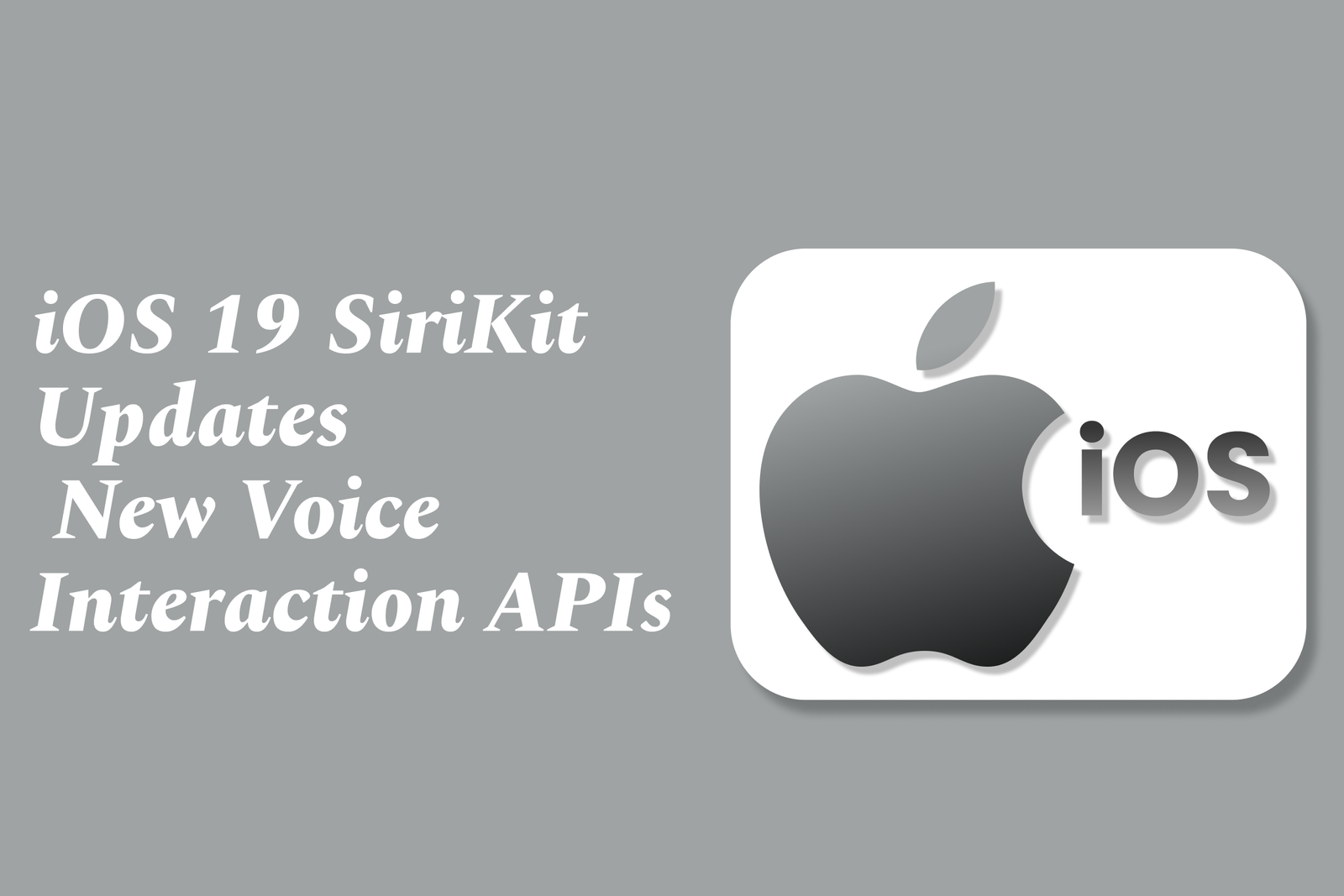iOS 19 sirikit updates: new voice interaction apis
iOS 19 SiriKit updates introduce new Voice Interaction APIs that enhance app integration with Siri, enabling developers to create richer, multi-step voice commands and more natural, context-aware conversations for a seamless, hands-free user experience.
iOS 19 SiriKit Updates: New Voice Interaction APIs
1 ) Introduction to SiriKit and Its Importance
SiriKit is Apple's framework enabling iOS app developers to integrate voice command capabilities into their applications. It leverages natural language processing to interpret and execute user requests, enhancing app accessibility and creating a more seamless, hands free user experience. SiriKit allows apps to recognize voice commands, define custom vocabulary, offer shortcuts for frequent actions, and provide context aware responses.
2 ) Key Domains in SiriKit
SiriKit is structured around several domains that cover broad categories of user activities. Each domain contains specific intents—predefined actions Siri understands and processes. Important domains include:
Messaging: composing and reading messages.
VoIP Calling: handling voice calls.
Payments: facilitating sending/requesting funds.
Ride Booking: managing ride services.
Workouts: controlling fitness activities.
Media: playing music, podcasts, and videos.
3 ) Popular Apps Using SiriKit
Many leading apps harness SiriKit to improve usability and streamline voice interactions:
Uber and Lyft: enabling voice activated ride booking.
WhatsApp and Skype: supporting sending messages and calls through voice.
Nike Run Club: integrating workout commands via Siri.
4 ) iOS 19 Updates: New Voice Interaction APIs
The latest iOS 19 update introduces enhanced Voice Interaction APIs within SiriKit, granting developers deeper control over conversational voice commands. These new APIs promote refined voice driven app behaviors and enable multi step, context rich interactions, expanding Siri’s capability to understand complex requests and providing more natural dialogues between users and apps.
5 ) Benefits for Developers and Users
Developers gain tools to build more intuitive and engaging voice experiences.
Users enjoy more efficient, hands free operation of apps, simplifying everyday tasks and improving accessibility.
In summary, the iOS 19 SiriKit updates bring advanced voice interaction APIs that empower developers to create richer voice enabled experiences, fostering seamless and intelligent voice communications with apps on the iPhone.
https://justacademy.in/news-detail/android-multi-user-feature-updates
https://justacademy.in/news-detail/android-notification-management-improvements
https://justacademy.in/news-detail/google-play-protect-latest-news
https://justacademy.in/news-detail/android-launchers-with-new-capabilities
https://justacademy.in/news-detail/flutter-salary-trends-in-2025
Related Posts
Java supports GDPR and data privacy by enabling secure data handling through encryption, controlled access, and precise data management. It allows developers to minimize PII exposure, ensure data confidentiality, and design workflows that comply with data protection regulations effectively.
Java code quality tools have evolved to include advanced static analysis, integrated security checks, and AI-powered code reviews. These updates help developers detect bugs, enforce coding standards, and enhance security, streamlining the development process and improving overall code reliability.
Java remains a cornerstone in big tech companies, evolving with modern features like records, pattern matching, and virtual threads. Its robust ecosystem, enhanced performance, and growing AI integrations keep it vital for both legacy systems and innovative new projects.
Java and CI/CD pipeline optimizations streamline Java application development by automating builds, tests, and deployments. They improve efficiency through parallelization, caching, and secure secrets management, enabling faster feedback loops and more reliable, scalable software delivery.
Java supports modern cryptography standards through its flexible Java Cryptography Architecture (JCA), enabling integration of advanced algorithms like AES, EdDSA, and post-quantum tools. Libraries like Bouncy Castle offer FIPS-certified, hardware-accelerated implementations for secure development.
Java 23 enhances record patterns by enabling concise, direct destructuring of record components within pattern matching, simplifying type checks and data extraction. This improvement boosts code readability and expressiveness by reducing boilerplate in handling immutable data classes.
Java remains a top choice for mobile app backends, powering scalable, secure, and high-performance server-side solutions. Latest trends include cloud-native microservices, reactive programming, and enhanced JVM optimizations, enabling efficient, flexible, and robust mobile backend development.
Java SE 24 and LTS Java SE 21 offer enhanced features and performance, while Apache Spark 4.0.0 introduces Scala 2.13 support and advanced ML and SQL capabilities. Together, they empower developers to build scalable, high-performance data applications with modern tools.
JUnit 5 modernizes Java testing with a modular architecture, improved assertions, and seamless Java 8+ support. Beyond JUnit, tools like Mockito and AssertJ enhance mocking and assertions, creating a powerful, flexible ecosystem for writing clean, efficient Java unit tests.
Java plays a pivotal role in cloud automation tools by providing a robust, platform-independent language used to build scalable automation frameworks like Jenkins and Selenium, enabling efficient CI/CD pipelines, testing, and orchestration across diverse cloud environments.










